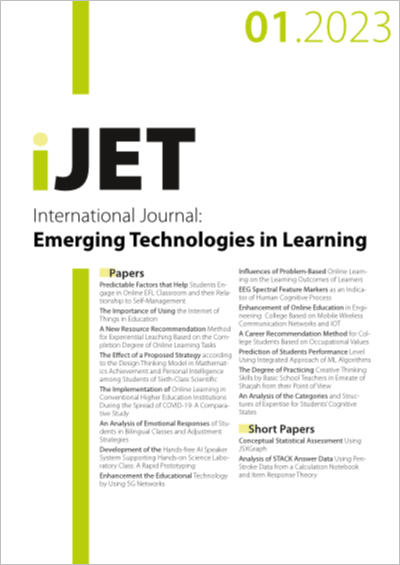Prediction of Students Performance Level Using Integrated Approach of ML Algorithms
DOI:
https://doi.org/10.3991/ijet.v18i01.35339Keywords:
Machine Learning (ML), Fuzzy C-Means (FCM), Multi-Layer Perceptron, Logistic Regression, Random Forest (RF)Abstract
In this paper, the efficacy of machine learning (ML) techniques for predicting the academic success of students is investigated. In issues pertaining to higher education, as well as machine learning, deep learning, and its linkages to educational data, predicting student achievement is essential. The choice of courses and the development of effective future study plans for students can be easier with the help of the capacity to forecast a student's success. In addition to predicting student achievement, it makes it easier for instructors and administrators to keep an eye on children so that they can offer support and integrate trainings for the greatest outcomes. In this study, we define the idea of predicting the student performance in education and its several iterations. We discuss a number of ML approaches, such as the Fuzzy C-Means, the Multi-Layer Perceptron (MPL), the Logistic Regression (LR), and the Random Forest (RF) algorithms, for predicting student achievement in the classroom. The models for forecasting student performance that are now in use and those that have been proposed in this paper are carefully investigated. The paper examines different combinations of the algorithms including FCM – MLP, FCM – LR, and FCM – RF, and provides the detailed results of each combination. These strategies are assessed using quantitative standards including accuracy, detection rate, and false alarm rate.
Downloads
Published
How to Cite
Issue
Section
License
Copyright (c) 2022 Mirza Azam Baig, Sarmad Ahmed Shaikh, Kamlesh Kumar Khatri, Muneer Ahmed Shaikh, Muhammad Zohaib Khan, Mahira Abdul Rauf

This work is licensed under a Creative Commons Attribution 4.0 International License.


